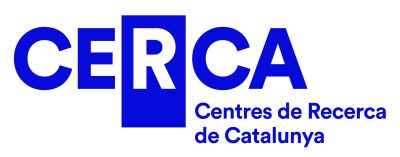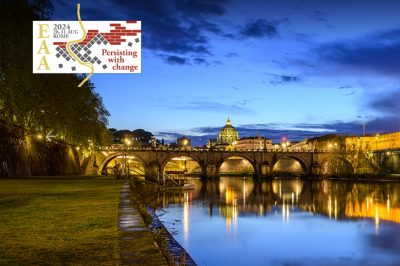
L’ICAC-CERCA acomiada l’estiu deixant una gran empremta al 30è Congrés Anual de l’European Assotiation of Archaeologists (EAA), celebrat a Roma del 28 al 31 d’agost.
Aquest important esdeveniment va reunir experts d’arreu del món per explorar la diversitat i la complexitat de la pràctica arqueològica, des de la interpretació històrica fins a la gestió del patrimoni i la política del passat i del present.
La presència de l’ICAC-CERCA al 30è Congrés Anual de l’EAA va destacar amb 19 contribucions i l’organització de 7 sessions, fet que reflecteix la profunditat i l’amplitud de la nostra recerca.
El grup de recerca GIAP va contribuir al 30è Congrés Anual de l’EAA amb 13 presentacions i l’organització de 5 sessions.
Sessions:
- Valentina Pescini va liderar l’organització de la sessió 482: ‘Past Is Not Past’. Environmental Effects of Past Land Use on Present Resources Ecology. Environmental Archaeology between Research and Application.
- Federica Riso, Alexandra Livarda i Patricia Vandorpe van coorganitzar la sessió 598: The Archaeobotany of the Cities and Urban Landscapes.
- Faidon Moudopolous-Athanasiou va liderar l’organització de la sessió 669: Ottoman-era/historical Archaeology: Materials and Methods in Context.
- Alexandra Kriti va liderar l’organització de la sessió 1009: Beyond the Lens: Contemporary Methods and Interdisciplinary Synergies in Archaeology.
- Iban Berganzo-Besga i Nazarij Bulawka van coorganitzar la sessió 1071: Machine Learning Methods in Archaeological Research: New Approaches, Barriers and Standardization.
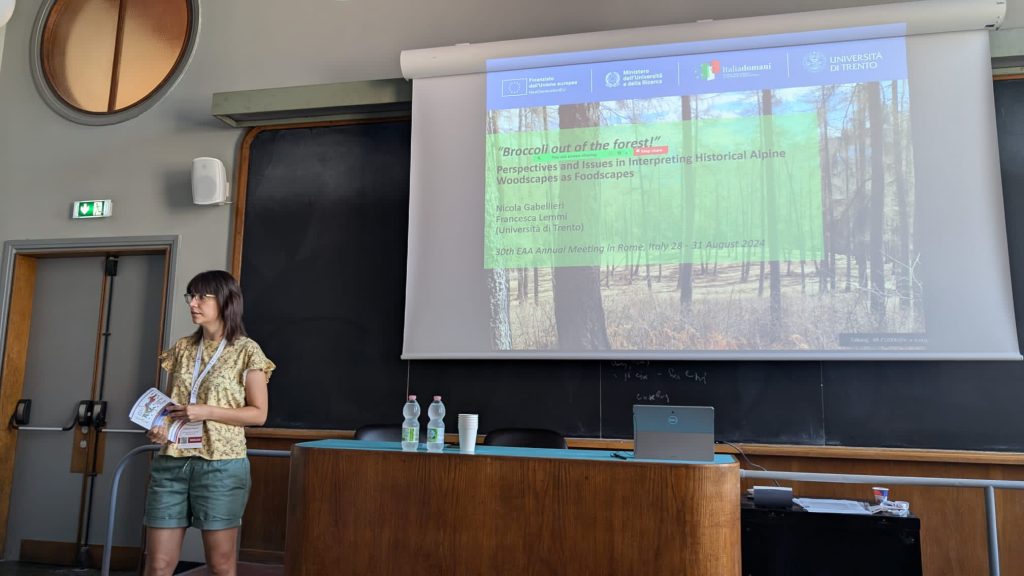
Presentacions:
- Valentina Pescini (ICAC-CERCA) amb Lorenzo Braga, Eleonora Rattighieri, Ivano Rellini i Assunta Florenzano (Università degli Studi di Modena e Reggio Emilia) van presentar “Transhumance Landscapes in the Southwestern Italian Alps: The Contribution of Palynology in Environmental and Cultural Heritage” (Session 482. ‘Past Is Not Past’: Environmental Effects of Past Land Use on Present Resources Ecology. Environmental Archaeology Between Research and Application).
- Chiara Messana (UAB-IPHES), Carles Tornero (UAB-IPHES) i Lídia Colominas (ICAC-CERCA) van presentar “Beyond Grazing: A Multi-isotope Approach to Investigate Sheep Feeding Strategies in the Iron Age Iberian Peninsula (3rd C. Bc)” (Session 463. Methods of Analysing Subsistence Resources, Landscape Management and Exploitation Practices Between the Bronze Age and Iron Age).
- Andrew Mclean (ICAC-CERCA) i Šprem, Katarina (independent researcher) van presentar “Connectivity, Road Networks And The Rural Economy Of Roman Istria” (Session 390. Modelling Connections: New Methodologies to Understand Human Mobility, Route Networks and Land).
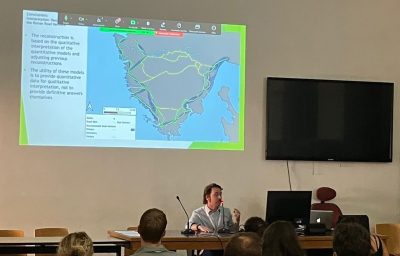
- Faidon Moudopolous-Athanasiou (ICAC-CERCA) va presentar “Milk Without Honey: An Archaeological Ethnography of Lime Across the Albanian-greek Border and the Early Modern Cultural Landscape” (Session 505. Ethnographies of Makers and Making: Traditional Craft and Technology in Contemporary Societies).
- Theoni Baniou, Alexandra Livarda i Patricia Vandorpe, de l’ICAC-CERCA, amb Núria Romaní (UAB), van presentar “Digging in The Wells: Food and Trade Relations in Roman Guissona” (Session 598. The Archaeobotany of Cities and Urban Landscapes).
- Federica Riso i Alexandra Livarda (ICAC-CERCA) van presentar “An Archaeobotanical Exploration of Urban Food Practices Through Time in Roman Italy” (Session 598. The Archaeobotany of Cities and Urban Landscapes).
- Patricia Vandorpe i Alexandra Livarda (ICAC-CERCA) van presentar “Food Plants and Social Dynamics in the Urban Settlements of the Northern Roman Provinces” (Session 598. The Archaeobotany of Cities and Urban Landscapes).
- Nazarij Bulawka (ICAC-CERCA) i Hèctor A. Orengo (ICREA-ICAC) van presentar “Underthesands: Investigating Ancient Irrigation Landscapes in Arid Climates Through Remote Sensing and Deep Learning Methods” (Session 745. Remote Sensing of the Changing Mediterranean, Middle East and North Africa Region).
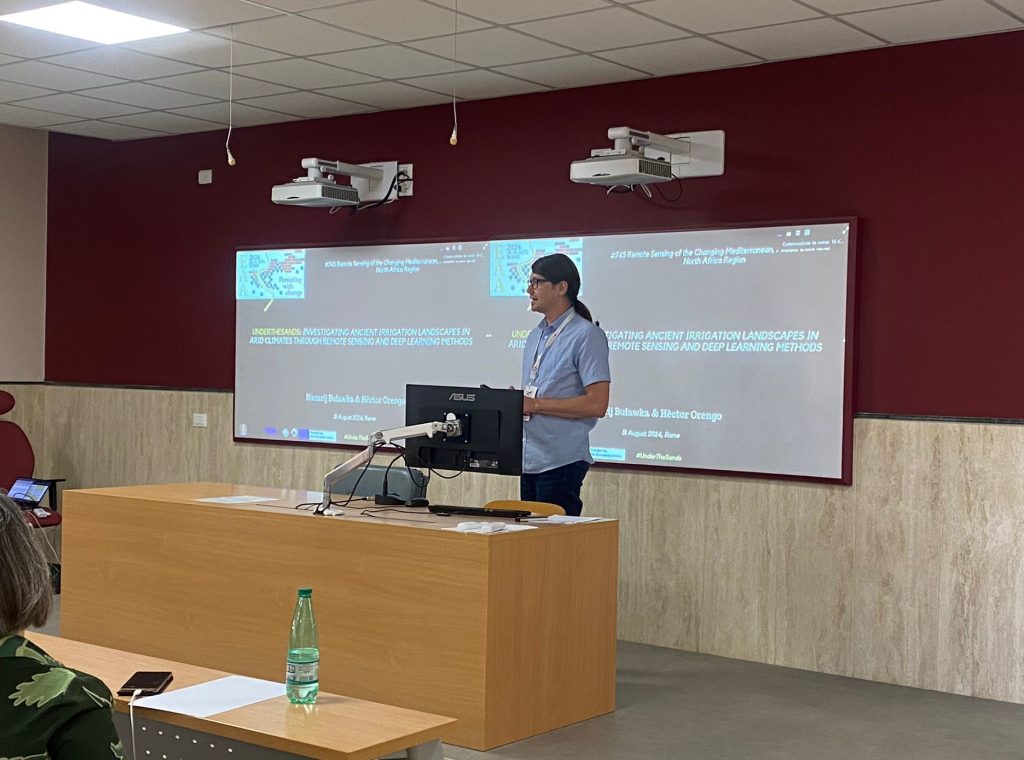
- Laura Strolin i Lídia Colominas (ICAC-CERCA), i Gabriella Petrucci (independent researcher), van presentar “Investigating Animal Mobility in the Roman World. A Geometric Morphometric Study of Faunal Remains from North-eastern Iberian and Italian Peninsulas” (Session 904. Mobility, Movement and Interaction in the Ancient World: New Avenues of Interpretation).
- Alexandra Kriti (ICAC-CERCA), Alexandra Livarda (ICAC-CERCA), Hèctor A. Orengo (ICREA-ICAC), Ioannis Mylonas (HAO-IPBGR) i Eñossavet Ninou (International Hellenic University) van presentar “Lab-induced Heating of Greek Barley (H.Vulgare) Landraces; A Set of Experimental Methods to Explore Past Agricultural Practices” (Session 1009. Beyond The Lens: Contemporary Methods And Interdisciplinary Synergies In Archaeobotany).
- Sayantani Neogi i Francesc Conesa (ICAC-CERCA), i Hèctor A. Orengo (ICREA-ICAC), van presentar “Post-conflict Landscapes in Eastern Mediterranean: Geoarchaeological and Automated Remote Sensing Mapping of Vulnerable Archaeological Soilscapes in the Lebanese Bekka Valley” (Session 745. Remote Sensing of the Changing Mediterranean, Middle East and North Africa Region).
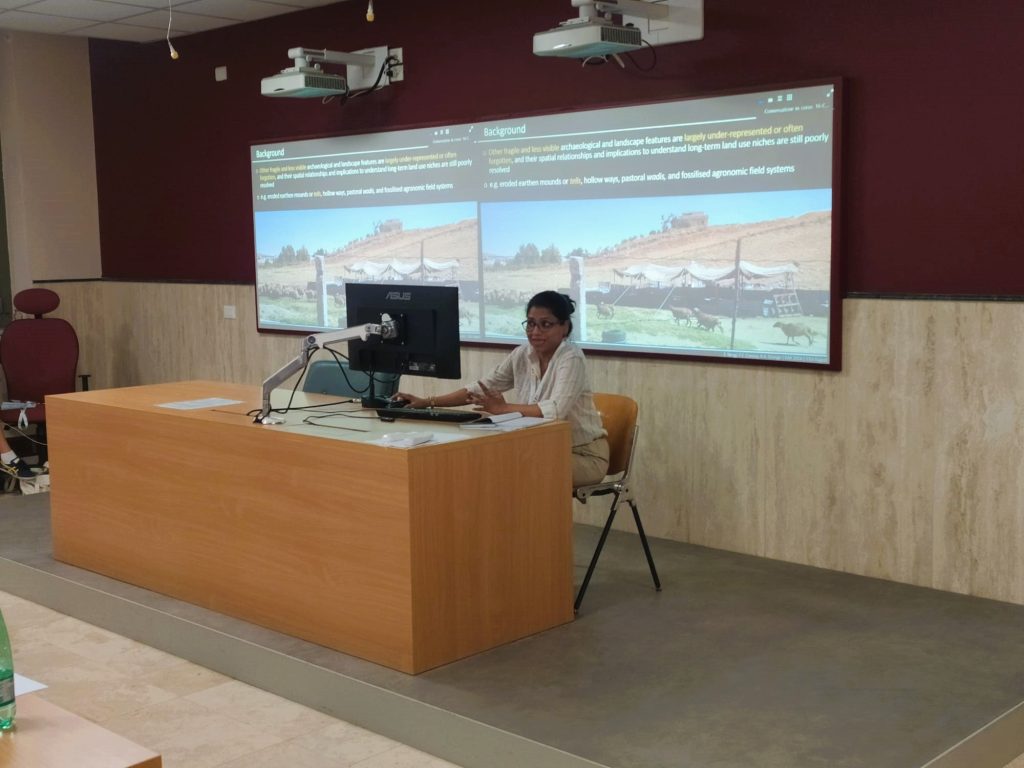
- Iban Berganzo-Besga (Univ. of Toronto Mississauga), Hèctor A. Orengo (ICREA-ICAC) i Felipe Lumbreras (CVC-UAB) van presentar “Computer Vision Best Practices in Computational Archaeology” (Session 1071. Machine Learning Methods in Archaeological Research: New Approaches, Barriers and Standardization).
- Valentina Pescini (ICAC) i Nicola Gabellieri (Univ. di Trento) van presentar “Interdisciplinary Research on Charcoal Kiln Sites in Montieri (Tuscanyitaly): Environmental Dynamics and Woodmanship Practices between 18th-20th Century” (Session 1082. The Archaeology of Eu-potarch: The Production of Potash, Tar, Resin and Charcoal in the Archaeological Record).
El grup de recerca MIRMED va presentar quatre contribucions i va coorganitzar dues sessions al 30è Congrés Anual de l’EAA.
Sessions:
- Marta Mateu, M. Carme Belarte i María Pastor van coorganitzar la sessió 160: Mysterious Mud: A Transversal Approach to Interpreting Unsolved Earthen Remains.
- Enric Colom va coorganitzar la sessió 417: Hispania and the Mediterranean: New Approaches to the Analysis of Sea-and-inland Networks (3rd C. Bc-7th C. Ad).
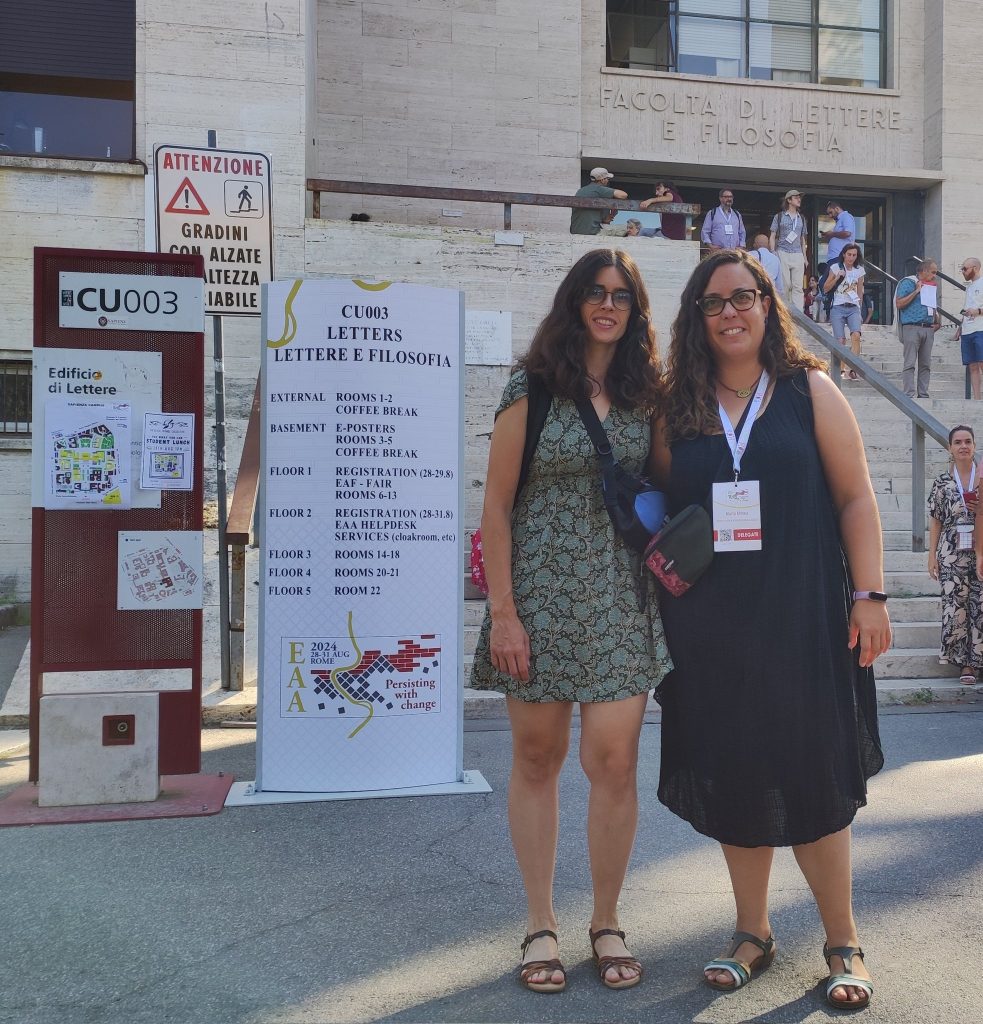
Presentacions:
- Marta Mateu, (ICAC-CERCA), M. Carme Belarte (ICREA-ICAC), María Pastor (UA-ICAC) i Carme Saorin (UB) van presentar “From the Hearth: Differentiating Combustion Surfaces from Other Hardened Flat Earthen Fragments” (Session 160. Mysterious Mud: A Transversal Approach to Interpreting Unsolved Earthen Remains).
- Enric Colom (UnED-ICAC) i Ramon Járrega (ICAC-CERCA) van presentar “New Evidence of Trade Networks Between Hispania and Rome” (Session 417. Hispania and the Mediterranean: New Approaches to the Analysis of Sea-and-inland Networks (3rd C. Bc-7th C. Ad).
- Maria Rueda i Ramon Járrega (ICAC-CERCA) van presentar “The Value of Dolia in the Assessment of the Roman Rural Organization. A Case of Study Form North-western Hispania” (Session 468. The Relationship Between Rural Settlements and the Territory During the Roman Period and Late Antiquity).
- M. Carme Belarte (ICREA-ICAC), Marta Mateu (ICAC-CERCA), María Pastor (UA-ICAC), Carme Saorín (UB), Dani López (Arqueovitis, Sccl), Joan Canela (ICAC), Antoni Corrales (ICAC), Georgina Prats (Univ. de Lleida) i Maria Anguera (ICAC) van presentar “Hearths or Plasters? A Methodological Proposal to Interpret Flat Surface Earthen Remains from Mediterranean Protohistoric Secondary Contexts” (Session 997. Cha?Ne Op?Ratoire and Life Cycle of Protohistoric and Ancient Building Materials).
El grup de recerca ArPA-LIRA va participar al 30è Congrés Anual de l’EAA amb dues contribucions.
- Simona Perna (ICAC-CERCA) va presentar “Crossing Paths. People-craft Interaction in Greek and Roman Stone Working. Insights From Marble and Decorative Stone Vases” (Session 814. Materialising Meaning. Centreing The Role of Social Interactions in Archaeomaterials Studies).
- Owain Morris va presentar “Far from the ‘Med-ding’ Crowd? Gender, Networks, and the Wool Trade in Eia Hirpinia” (Session 1173. Gender and Economies in Transition in the 1st Millennium Bc Mediterranean).
El 30è Congrés Anual de l’EAA ha estat, així, un esdeveniment altament productiu per als investigadors de l’ICAC-CERCA, que van tenir un paper clau en la formació de discussions i l’intercanvi de coneixement i experiències en la pràctica arqueològica.
Amb contribucions diverses que van des d’enfocaments metodològics avançats fins a col·laboracions interdisciplinàries, l’ICAC-CERCA continua influenciant el panorama arqueològic a escala internacional.
Esperem aplicar els coneixements adquirits i seguir avançant en la nostra recerca l’any vinent.
Sobre l’Institut Català d’Arqueologia Clàssica (ICAC-CERCA)
L’Institut Català d’Arqueologia Clàssica (ICAC-CERCA) és un centre CERCA creat com a consorci el 2003 per la Generalitat de Catalunya i la Universitat Rovira i Virgili. És una institució líder en la investigació i la conservació del patrimoni arqueològic a Catalunya. Té la seu a Tarragona, ciutat reconeguda com a Patrimoni Mundial per la UNESCO l’any 2000. Els seus investigadors i investigadores treballen per comprendre el passat a través de l’estudi de les restes arqueològiques i promoure la preservació del ric llegat històric de la regió. Som CERCA!
Per a més informació, visiteu el lloc web de l’ICAC a www.icac.cat.
